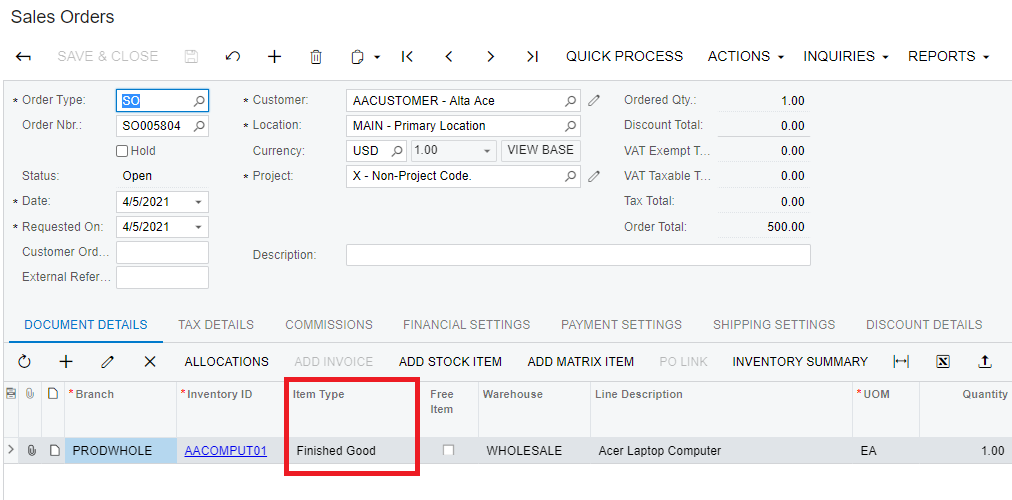I’ve seen how I can add an inventory extension to dynamically create fields on the InventoryItem DAC for one or more attributes and that seems nice for Generic Inquiries.
In my case I want to add an inventory item attribute to the SO Order Entry Document Details tab as a read-only field.
I’m not sure of the best way to make that field in the SOLine DAC.





